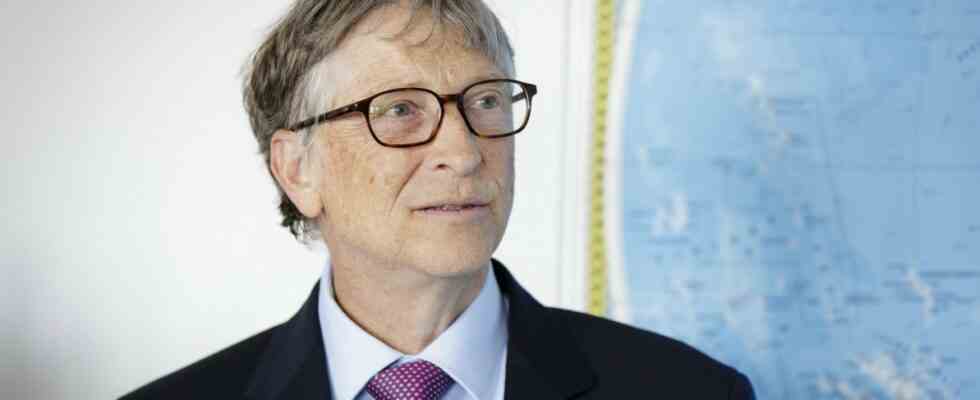This year’s security conference in Munich is dominated by one topic: Russia’s war of aggression in Ukraine and its consequences. And according to Bill Gates, rightly so. But the Microsoft founder traveled to Munich to take part in the Munich Economic Debates, a series of events organized by the Ifo Institute and the Süddeutsche Zeitung, to plead that another topic should not be forgotten. Gates worries about the African continent.
“We assume that every life in the world is worth the same,” says Bill Gates. And nowhere is it so easy to save lives as in Africa. Many children are still dying there as a result of rotavirus infections, for which vaccinations have existed for years. But on the continent, many people do not have access to the vaccine. Children in the developed world, on the other hand, are vaccinated, although because of better medical care it is extremely unlikely that they will die if they are infected. Gates tries to solve such problems with his foundation and other partners. Gates sees the fact that child mortality in sub-Saharan Africa has fallen from over 20 percent to ten percent in recent years as one of the great achievements of mankind.
But this progress is in danger. “I fear that the trend will slow down or even reverse in the next few years,” says Gates. The war in Ukraine is causing the West’s attention to shift, and budgets for development cooperation in Africa are also threatening to melt. At the same time, the continent is being hit by many problems at the same time: global warming, the energy crisis, food security and, last but not least, the massive rise in interest rates, which is making it more difficult to pay off national debt.
Investments are also part of the solution for host Clemens Fuest
“We keep our promises,” says Jutta Urpilainen, EU Commissioner for Development, connected virtually from Brussels because of the Munich airport strike. “The war may be taking place on European soil, but we know that the crisis it has triggered is global – and our partners in Africa are suffering as a result.” The EU is also trying to persuade private companies to invest in Africa as part of the “Global Gateway” program.
Investments are also part of the solution for host Clemens Fuest, President of the Ifo Institute. One billion people live in sub-Saharan Africa, but Germany trades more with Ireland, where only five million live. So the potential is huge. However, Europe must adjust its priorities to African needs, said Fuest. A lot of talks in Europe are currently about making Africa greener and more digital, but these are European priorities. For African countries, investments in food production and health are possibly much more important.

